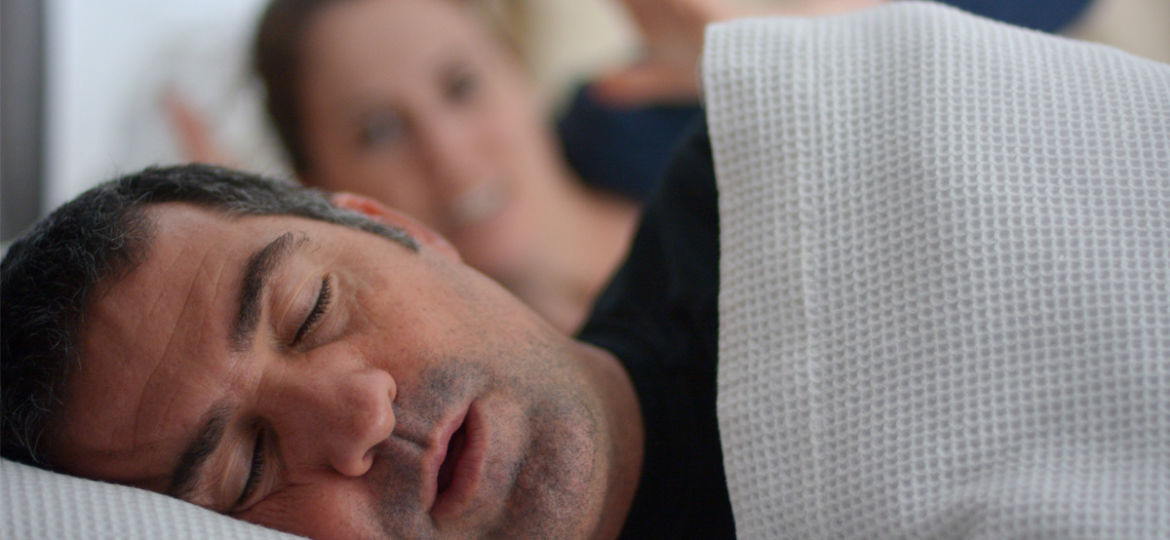
What is Obstructive Sleep Apnea?
Obstructive Sleep Apnea is a sleep breathing disorder where you stop breathing for a prolonged period of time, with multiple episodes per hour.
Why it Matters
- Increased risk for diabetes, high blood pressure, stroke, heart attack
- Often have brain fog, more likely to be depressed and have weakened immune system
- In addition we usually see many dental issues in people who suffer from OSA
Five Common Symptoms of Obstructive Sleep Apnea
We screen patients for many symptoms (including the above systemic diseases). But here are five of most common:
#1 – Snoring
Fifty percent of all people who snore actually have sleep apnea. Noise comes the air vibrating through a partially blocked airway. If gets severe will sound as if they are gasping for air.
#2 – Scalloped Tongue
Tongue gets pushed down into the floor of the mouth against teeth to try and open up the airway at night.
#3 – Broken and Chipped Teeth
See wear on front teeth as people with OSA push their lower jaw forward repeatedly to open the airway. This back and forth movement of the teeth rubbing against each other nightly can cause chipping and breakage of teeth. There are people who clench and grind their teeth at night that do not have OSA, but should be investigated.
#4 – Daytime Sleepiness
This one is obvious, and there can be many other causes of this, but if you have this along with some of the other symptoms high probability of OSA.
#5 – Red and Sore Throat
Due to the snoring, acid reflux is seen in about 60 percent of people with OSA.
Treatment for Obstructive Sleep Apnea
- Complete a sleep study
- If do have OSA, a CPAP or a specialized type of mouthguard can be made to move the lower jaw forward to open the airway
- Lifestyle modifications can help as well, including quitting alcohol and tobacco usage, weight loss, exercise, and positional sleeping changes
Fixing OSA can add years to your life and lower the risk of many negative side effects associated with it. Give our Mint Hill Dentistry office a call if you think you may need to be evaluated for possible OSA.

